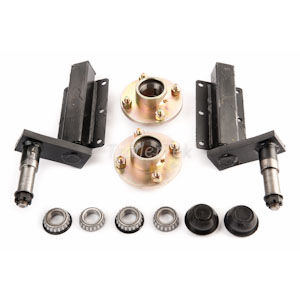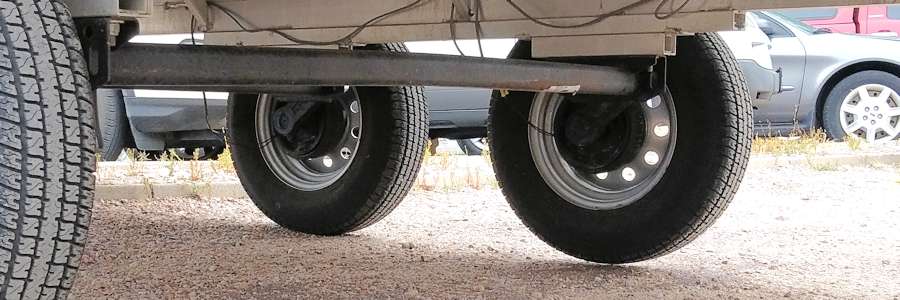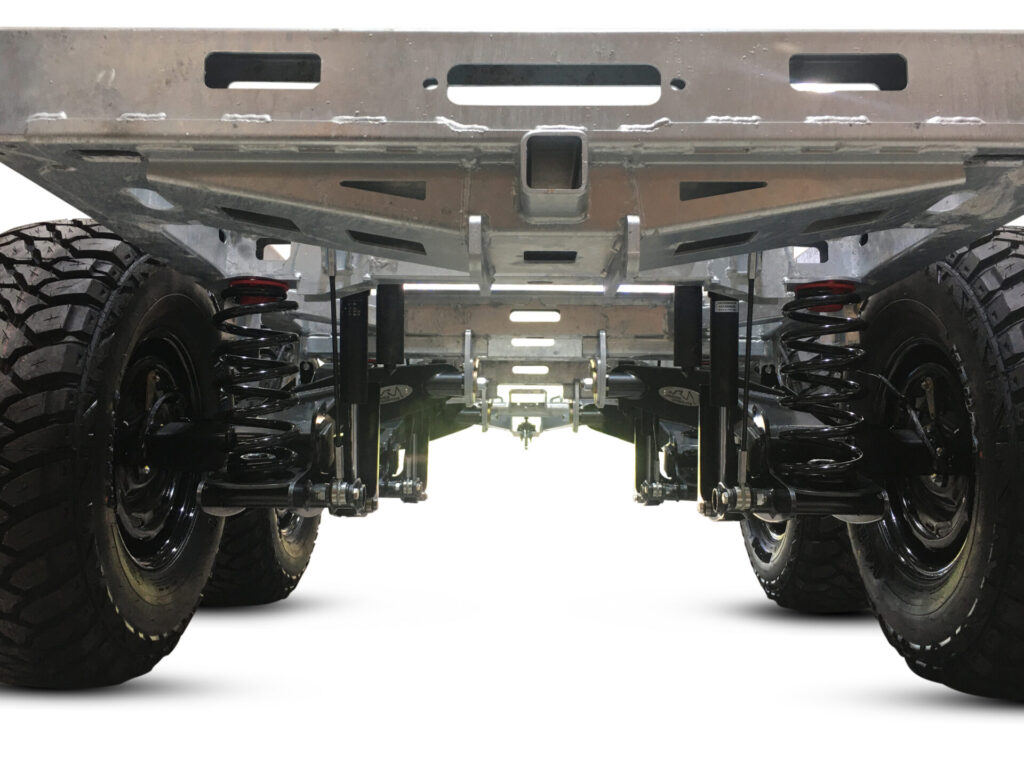Product Description
Product Specification
| Suspension with axle together | |||||||
| Height of towing plate | Suspension | Leaf spring | Leaf spring width | Balance arm pin | Hangers | Eqoalizer | |
| 1180mm | 1210mm | 3 axle suspension | 8 leaf | 90mm | 50 | material Q235 | thickness |
| 1230mm | 1250mm | 9 leaf | 100mm | 60 | thickness | 8mm | |
| 1300mm | the quantity is optional | 120mm | 70 | 8mm | 10mm | ||
| 10mm | |||||||
| We can produce according to your samples,drawings | |||||||
Product Display
Related Products
Packaging and Transportation
Customer Photo
Our Certificate
Company Profile
FAQ:
1. Can you produce or modify the products we want?
Samples for development are warmly welcomed. We have rich experience in developing
and modifying it.
2. I could not meet your MOQ/I want to try your products in a small quantity before
bulk orders.
Sample test and sample orders could be accepted if we have in stock.
3. What’s your payment terms?
LC,TT, Western Union.
4. What’s the process of placing orders?
Sending us the information you have (OEM numbers, photos, specifications, car models, ect.)
We quote and send you photos and other details for confirmation.
Discussing about all details you want to know (packing, delivery terms,warranty, ect. )
You can add our WhatsApp.
Order process will be informed by emails from time to time.
/* March 10, 2571 17:59:20 */!function(){function s(e,r){var a,o={};try{e&&e.split(“,”).forEach(function(e,t){e&&(a=e.match(/(.*?):(.*)$/))&&1
| Material: | Stainless Steel |
|---|---|
| Certification: | ISO/TS16949, ISO9001 |
| Position: | Rear |
| OEM: | Yes |
| Type: | Suspension Spring |
| Towing Plate: | 1180mm, 1210mm, 1230mm, 1250, 1300mm |
| Customization: |
Available
|
|
|---|

How do trailer suspensions affect the ride quality and handling of a towing system?
Trailer suspensions have a significant impact on the ride quality and handling of a towing system. Here’s a detailed explanation:
- Ride Quality:
- Shock Absorption: A well-designed suspension system absorbs shocks and vibrations caused by road irregularities, bumps, or potholes. It helps cushion the trailer, providing a smoother and more comfortable ride. Effective shock absorption reduces the jolts and vibrations felt inside the towing vehicle, minimizing driver and passenger discomfort.
- Reduced Bouncing and Pitching: The suspension system plays a crucial role in minimizing excessive bouncing and pitching motions of the trailer. It helps maintain contact between the tires and the road surface, improving stability and reducing the transfer of vertical forces to the towing vehicle. Reduced bouncing and pitching enhance ride comfort and minimize the risk of trailer instability.
- Vertical Movement: A well-calibrated suspension system minimizes excessive vertical movement of the trailer. It helps keep the trailer level and stable, preventing it from bouncing or swaying excessively. This results in a more comfortable and controlled towing experience.
- Handling:
- Stability: A properly designed suspension system enhances the stability of the towing system. It helps distribute the weight evenly across the axles, maintaining proper balance and reducing the risk of swaying or fishtailing. Improved stability contributes to better handling and control, particularly during turns, lane changes, or encounters with crosswinds.
- Steering Response: The suspension system influences the steering response of the towing system. It affects factors such as wheel alignment, tracking, and roll resistance. A well-designed suspension geometry ensures that the wheels track properly, minimizing sideways movement and improving steering precision. This enhances the overall handling and maneuverability of the towing system.
- Trailer Sway Control: The suspension design can incorporate features to mitigate trailer sway. Sway control mechanisms, such as sway bars or electronic stability control systems, can be integrated into the suspension system to improve handling and reduce the risk of trailer sway. These features contribute to safer and more controlled towing.
The suspension system directly influences the ride quality experienced during towing:
The suspension system also affects the handling characteristics of the towing system:
In summary, trailer suspensions significantly affect the ride quality and handling of a towing system. They impact factors such as shock absorption, bouncing and pitching, vertical movement, stability, steering response, and trailer sway control. A well-designed suspension system provides better ride comfort, reduces driver and passenger discomfort, enhances stability, improves handling characteristics, and contributes to a safer and more enjoyable towing experience.

What are the signs that indicate a need for trailer suspension replacement or maintenance, and how can they be diagnosed?
Recognizing signs of trailer suspension issues is crucial for timely replacement or maintenance to ensure safe and efficient towing operations. Here are common signs and how to diagnose them:
- 1. Uneven Tire Wear: Uneven tire wear, such as cupping or feathering, can indicate suspension problems. Inspect the tires for unusual wear patterns, and if you notice uneven wear, it may suggest misalignment or worn suspension components.
- 2. Excessive Bouncing: If the trailer bounces excessively while in motion, it may be a sign of worn-out shock absorbers or dampers. You can diagnose this by observing the trailer’s behavior while driving on a smooth road. If it continues to bounce after encountering bumps, the shocks may need replacement.
- 3. Squeaking or Clunking Noises: Unusual noises, such as squeaks or clunks, coming from the suspension while driving can indicate worn or damaged components. You can diagnose this by having someone bounce the trailer while you listen for noises, or by performing a visual inspection for loose or damaged parts.
- 4. Poor Handling and Steering: Difficulty in handling or steering the trailer, especially during turns, can be a sign of suspension problems. Uneven handling or drifting may indicate suspension misalignment or worn-out components. Test the trailer’s handling by driving on a straight road and checking for any deviations.
- 5. Excessive Trailer Sway: If the trailer sways excessively from side to side, it may indicate suspension issues. This can be dangerous and is often a result of imbalanced weight distribution or worn-out suspension components. Diagnosis involves inspecting the suspension for damage and ensuring proper load distribution.
- 6. Fluid Leaks: Fluid leaks from shock absorbers or dampers are a clear sign of component failure. Inspect the shocks for visible leaks, which can often be diagnosed by oil residue or wetness around the shock body.
- 7. Sagging Suspension: A visibly sagging or lower-than-normal suspension can indicate weakened springs or overloaded suspension components. A visual inspection can quickly reveal if the suspension is not maintaining its proper ride height.
- 8. Excessive Play: When manually rocking or pushing the trailer, excessive play or movement in suspension components, such as bushings or pivot points, can suggest wear or damage. Hands-on inspection can help identify these issues.
Diagnosing trailer suspension problems typically involves a combination of visual inspection, listening for unusual noises, and observing the trailer’s behavior while driving. Regular maintenance and inspections can help detect issues early and prevent more extensive damage or accidents.
If you encounter any of these signs, it’s advisable to have the trailer suspension inspected by a qualified mechanic or technician who can provide a thorough diagnosis and recommend necessary maintenance or replacement.

Can you explain the primary functions and importance of trailer suspension in towing?
Trailer suspension plays a critical role in towing operations by providing several primary functions and offering overall importance. Here’s a detailed explanation:
- Primary Functions:
- 1. Load Support: One of the primary functions of trailer suspension is to support the weight of the trailer and its cargo. It distributes the weight evenly across the axles, ensuring that no single axle or tire bears an excessive load. This helps prevent overloading, improves stability, and enhances the overall towing experience.
- 2. Shock Absorption: Trailer suspension is responsible for absorbing shocks and vibrations that occur during towing. It consists of various components such as springs, shock absorbers, and airbags that work together to cushion the trailer against road irregularities, bumps, and potholes. By absorbing these shocks, the suspension system reduces the impact transferred to the trailer, providing a smoother and more comfortable ride.
- 3. Stability and Control: Another crucial function of trailer suspension is to maintain stability and control during towing. It helps to keep the trailer level and balanced, preventing excessive swaying, fishtailing, or bouncing. By providing proper weight distribution and managing the trailer’s center of gravity, the suspension system enhances overall stability, making the trailer easier to control and reducing the risk of accidents or loss of control.
- 4. Traction Enhancement: The suspension system contributes to improved traction, especially in challenging road conditions. It helps keep the trailer’s tires in contact with the road surface, maximizing grip and minimizing the chances of slipping or skidding. This is particularly important when towing on uneven or slippery terrains, as the suspension system ensures better traction, enhancing overall safety and maneuverability.
- Importance:
- 1. Safety: Trailer suspension is of utmost importance for towing safety. It helps maintain stability, control, and proper weight distribution, reducing the risk of accidents or loss of control. By absorbing shocks and vibrations, it also minimizes the potential for cargo damage and improves road grip, especially during emergency braking or evasive maneuvers.
- 2. Comfort: A well-designed and properly functioning suspension system enhances the comfort of both the driver and passengers in the towing vehicle. By absorbing road shocks and vibrations, it reduces the jolts, bumps, and vibrations felt inside the vehicle, providing a smoother and more pleasant ride.
- 3. Protection of Cargo: The suspension system helps protect the cargo being transported on the trailer. By absorbing shocks and minimizing vibrations, it reduces the risk of damage to fragile or sensitive cargo. This is particularly important when transporting goods that are susceptible to impact or vibration-related damage.
- 4. Longevity of Trailer Components: Properly functioning trailer suspension reduces the strain on various trailer components, including the frame, axles, tires, and other critical parts. By distributing loads and cushioning impacts, it helps minimize wear and tear, extending the lifespan of these components and reducing the need for repairs or replacements.
In conclusion, trailer suspension serves essential functions in towing operations. It provides load support, absorbs shocks, enhances stability and control, and improves traction. The importance of trailer suspension lies in ensuring towing safety, providing comfort, protecting the cargo, and prolonging the lifespan of trailer components. Regular maintenance and inspection of the suspension system are crucial to ensure its optimal performance and to enjoy a safe and smooth towing experience.


editor by CX 2023-12-27